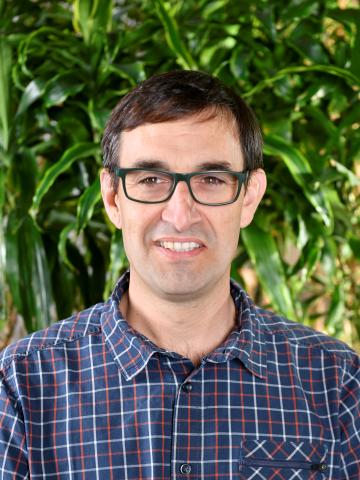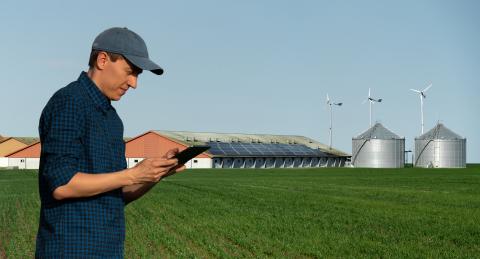Shared benefits, shared success: Carbon projects and community impact
Preferred by Nature, an accredited body for validating and verifying carbon projects, has been collaborating with local communities in Africa and Asia to ensure equitable benefit sharing. This is crucial for the success and sustainability of carbon projects, which are vital tools in the global fight against climate change.
In Kenya, Ivory Coast, and Uganda, Preferred by Nature has been working with smallholder farmers to transition to agroforestry, a practice that involves growing trees among crops or livestock. As trees grow, they sequester carbon from the atmosphere, improving land quality, increasing farmer income, and restoring biodiversity.
"The more social benefits carbon projects deliver, the better they will be able to reduce the local causes of deforestation," said Pablo Rodríguez Noriega, Preferred by Nature Climate and Restoration Programme Manager.
"Without these investments and community benefits, carbon projects are not what they are supposed to be," added Pablo.

Agroforestry systems allow local communities to develop business models that are environmentally friendly, sustainable in the long term, and meet the goal of emission mitigation.
Agroforestry, carbon credits and social benefits
The growth of the trees is measured using different methodologies and techniques approved by the Standards, such as field measurements, satellite imagery, and LiDAR information. This process ensures that every issued carbon credit is transparent in origin and traceable, representing tangible and measurable increases in biomass.
Rooted in the practice of agroforestry, these carbon credits not only benefit the environment by sequestering CO2 but also empower farmers by significantly improving their livelihoods and financial independence.

When benefit sharing is one of the goals of the Standard or project, part of the carbon credit revenue goes directly to the farmers (for instance, 60% in the case of Plan Vivo Standard and 80% in the case of the Acorn Framework). Trees support soil health, climate change resilience, and biodiversity, all while corporations offset unavoidable emissions or invests in climate change mitigation.
By transforming sequestered CO2 into high-integrity carbon credits, a sustainable solution is offered that benefits both the planet and the communities involved. This ensures that carbon credits are a robust investment in effective carbon sequestration and the local farmers or communities who make it possible.
Successful alliance for ensuring long-term success
By growing trees alongside crops or livestock, farmers can create a symbiotic relationship between trees and their land, fostering mutual benefits for the environment and local communities. This sequesters carbon, improves soil health, and restores biodiversity.
"Trees and farmers no longer find themselves in competition. Through facilitated discussions and shared goals, they have now formed a successful alliance."
María Sosa Llopis
Senior Carbon Project Specialist - Preferred by Nature
Projects that prioritise benefit sharing are more likely to gain community support and endure over the long term. Conversely, those that neglect this aspect often face resistance and conflicts, leading to their eventual failure.
The participation of farmers and local communities in the design of the project, in combination with benefit sharing, is key for the success of the project. Local communities and smallholders are often the custodians of vast tracts of land crucial for carbon sequestration. Their traditional knowledge, land management practices, and cultural ties to the land make them indispensable partners in carbon projects.

Fair distribution of benefits ensures that local stakeholders have a vested interest in the success of the project. This can range from direct financial incentives, such as carbon credit payments, to non-monetary benefits like capacity building, infrastructure development, and improved access to resources. This inclusive approach prevents marginalisation of the communities contributing to climate mitigation efforts and ensures they are rewarded fairly.
A path forward
As the world continues to seek solutions to the climate crisis, the role of local communities and the importance of benefit sharing cannot be overstated. Carbon projects must deliver both environmental and social benefits to be truly sustainable and effective.

Preferred by Nature's work has exemplified how supporting local communities and ensuring equitable benefit sharing can lead to successful and enduring carbon projects.
"It does not make sense to think of biodiversity and social benefits as 'supplemental' to the project’s core goals," emphasised Pablo.
"These elements are integral to the success and sustainability of carbon projects."
Photos by Pablo Rodríguez-Noriega / Preferred by Nature
Preferred by Nature is an accredited body for validating and verifying carbon projects to meet Verra, the Gold Standard and Plan Vivo requirements. To learn more about our services, click here.




